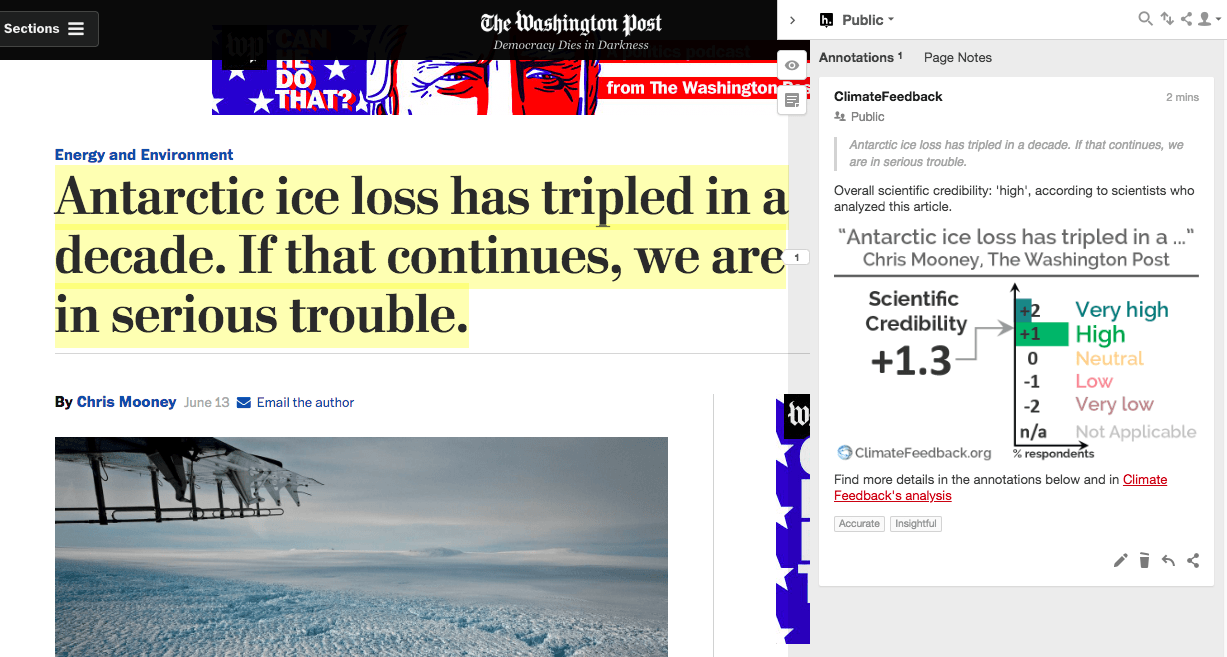
Washington Post article accurately describes latest estimate of accelerating Antarctic ice loss
“The article presents the results of the study accurately, and uses multiple comments from scientists both involved and not-involved in the study to highlight the key findings. Some of the explanations are simplified, and there is a slight attempt at the end to downplay the results by suggesting scientists can’t predict the future. It is correct that the study presented is not making predictions, rather documenting past changes, but the positive trend is what we would expect based on the longer record of change we have for glaciers and ice caps.”
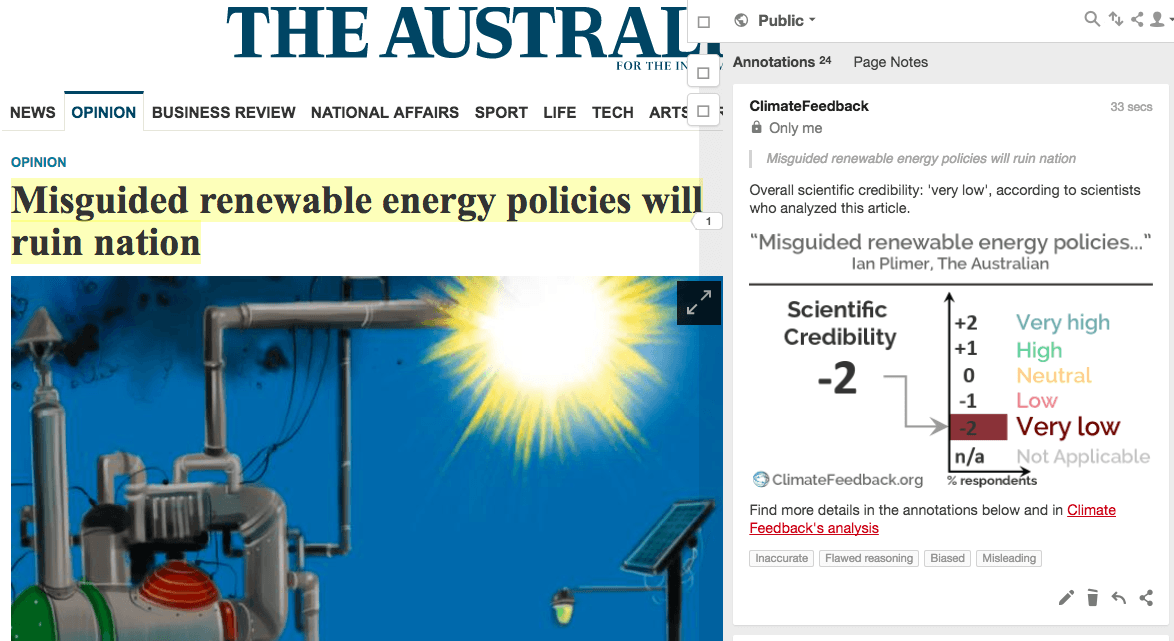
Commentary in The Australian ignores evidence and misrepresents research while falsely claiming humans are not responsible for climate change
“Yet another in the exhausting heap of opinions choosing not to engage with evidence, while still expecting readers to believe inaccurate and baseless claims. It is baffling why publications such as The Australian wish to promote opinions that are both not well-argued and demonstrably not based on fact.”
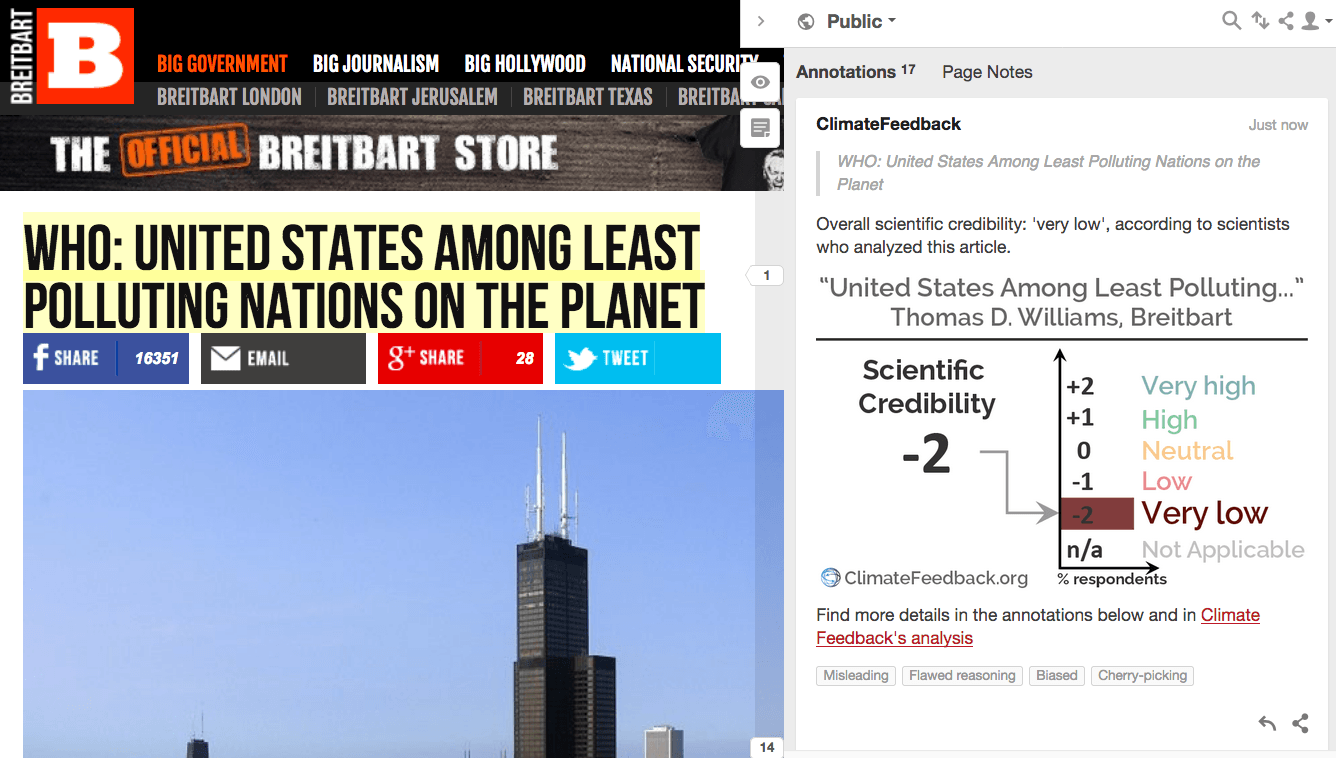
Playing semantics, misleading Breitbart article downplays US contribution to climate change
“This whole post is based on semantics and basically one big strawman fallacy. The author is deliberately confusing air pollution from suspended particulate matter (as discussed in the WHO report) with pollution from carbon dioxide emissions (as discussed in the Reuters link and the Paris Agreement). Even though CO2 does not impact our health through “disease-causing pollutants that get into people’s lungs”, it does change our environment and the Earth’s climate, and in that sense does classify as a pollutant.”
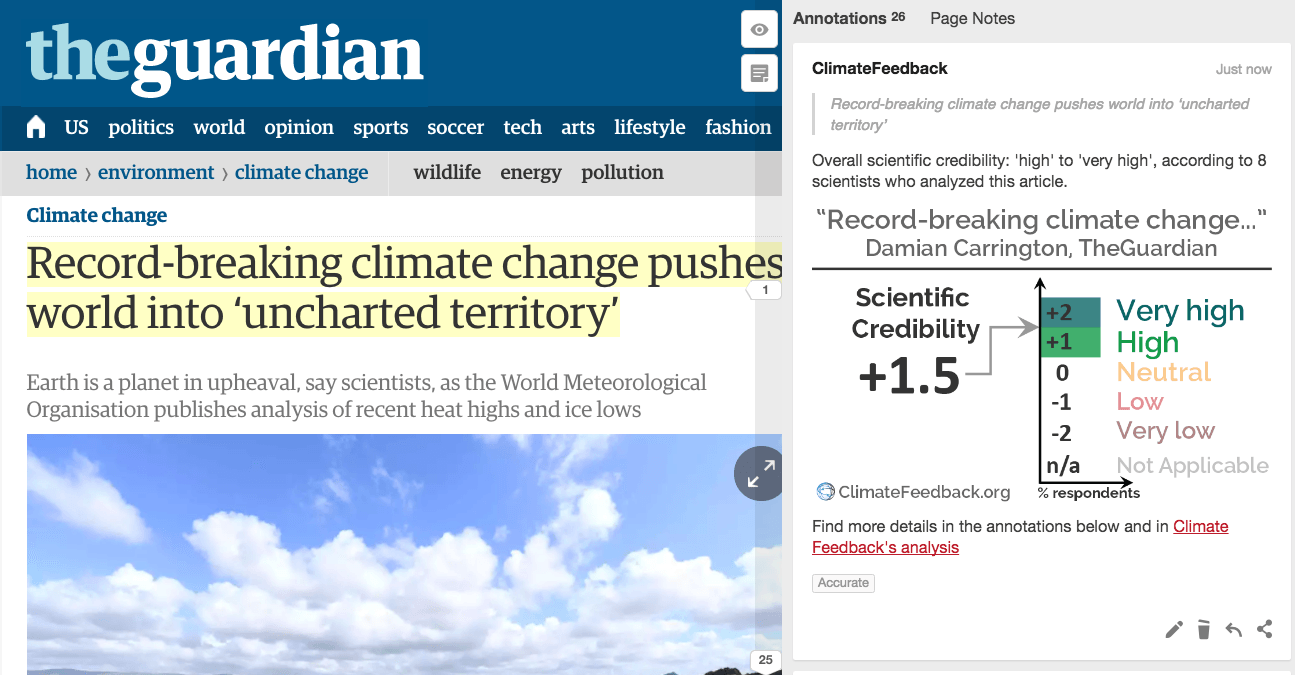
Analysis of "Record-breaking climate change pushes world into ‘uncharted territory’"
“The article clearly and concisely documents some of 2016’s climate extremes and puts them in the context of the warming trend.”
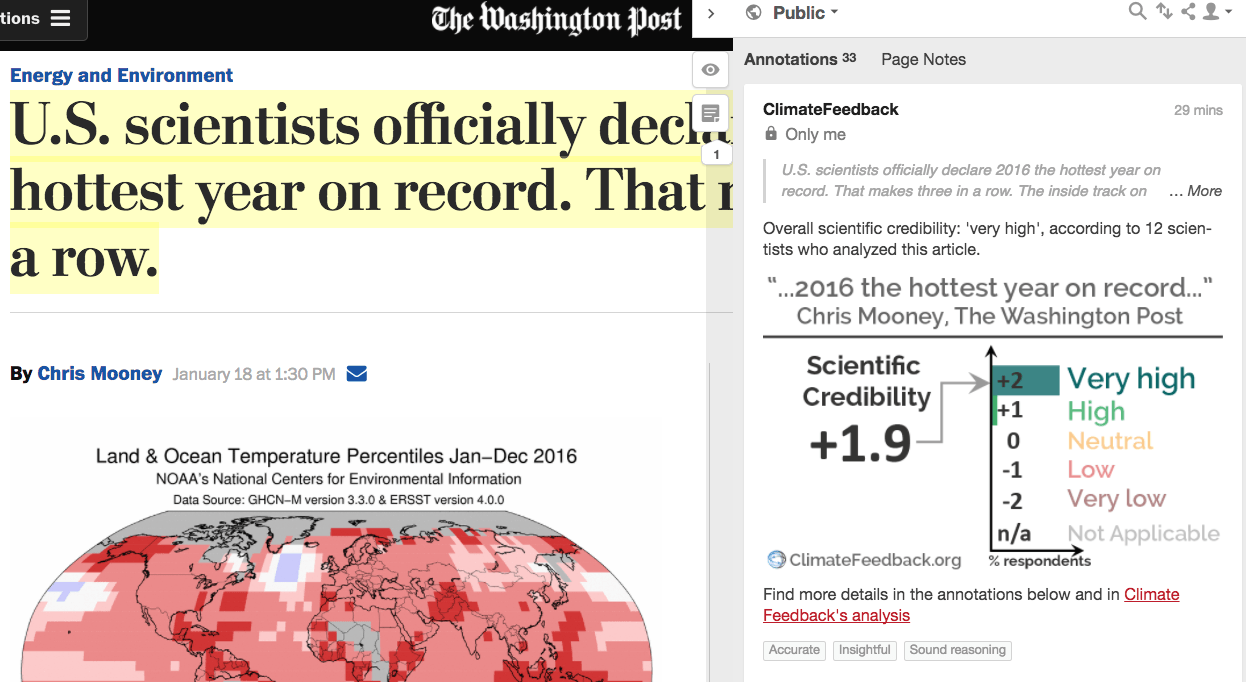
Analysis of "U.S. scientists officially declare 2016 the hottest year on record. That makes three in a row."
“The article accurately conveys the US agencies’ declaration of 2016 as the hottest year on record. It provides some good background material on why the agencies’ numbers differ slightly (treatment of the Arctic) and the contributing roles of El Niño and man-made global warming.”
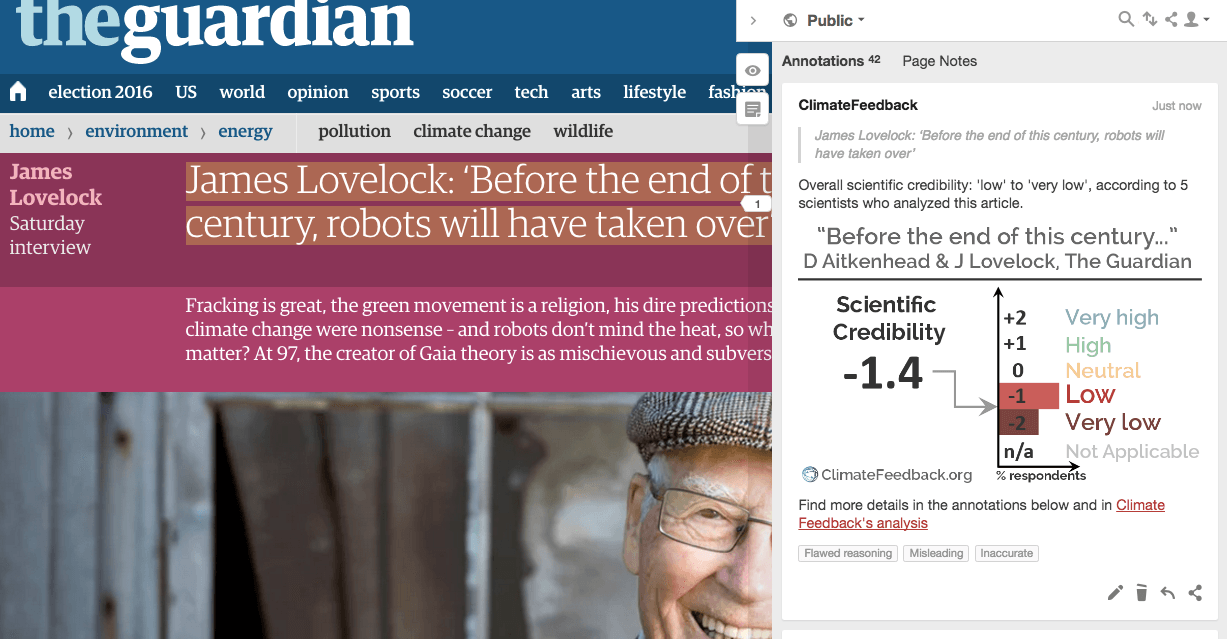
Analysis of "James Lovelock: ‘Before the end of this century, robots will have taken over’"
“Extraordinary claims demand extraordinary evidence, and Lovelock has not even come up to the standards of providing what the scientific community would consider to be ordinary evidence. The journalist did not balance Lovelock’s statements with a set of clear statements saying that the vast majority of informed climate scientists (as, for example, represented by the IPCC reports) have reached consensus on conclusions that are diametrically opposed to what Lovelock is saying, and that the IPCC scientists have backed up their statements with a wealth of empirical data, whereas Lovelock is largely opining without providing any substantive evidence to support his rather extraordinary claims.”
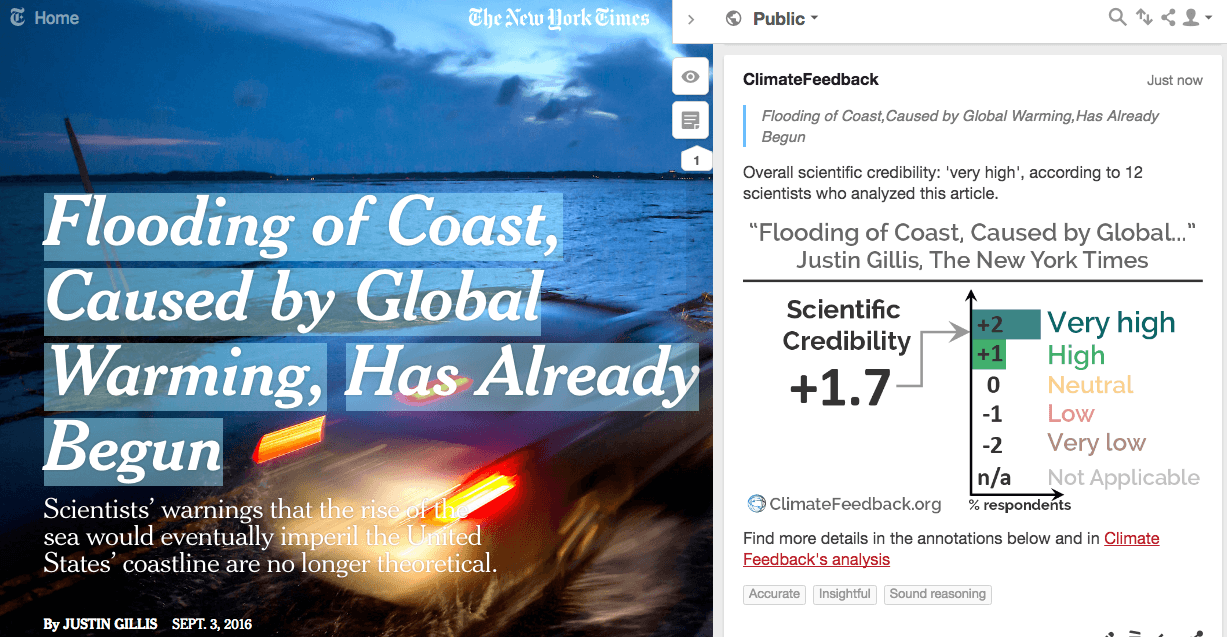
Analysis of "Flooding of Coast, Caused by Global Warming, Has Already Begun"
“The theory of sea-level rise and flood problems is pretty well understood — this makes the point that this theory is also happening now and can only be expected to get worse — sea levels have been rising on the US east coast for the last 150 years or more and even if current trends simply continue, impacts will continue to grow. As the article states, we actually expect a significant acceleration of sea-level rise in the coming decades meaning the impacts will grow more rapidly.”
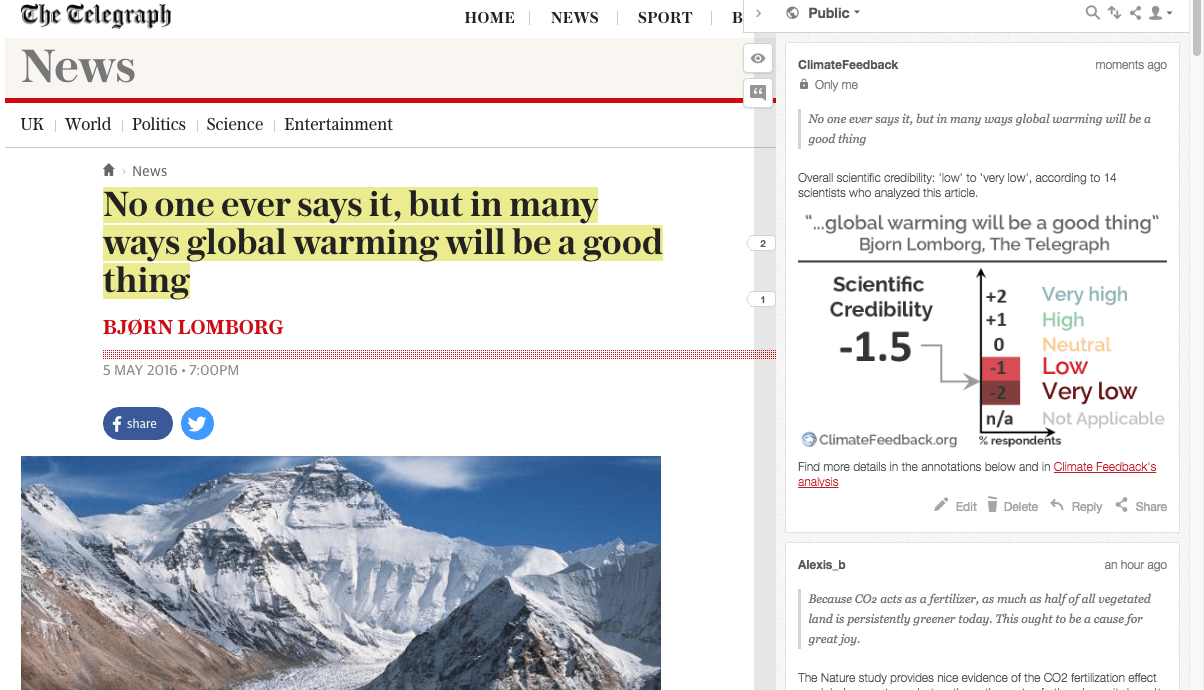
Analysis of "…in many ways global warming will be a good thing"
“This article presents a highly biased view of global warming, only presenting the “positive” aspects of it. As the author is criticizing media doing the opposite (always showing the bad side of climate change) it is a shame the author didn’t present a balanced view here.”
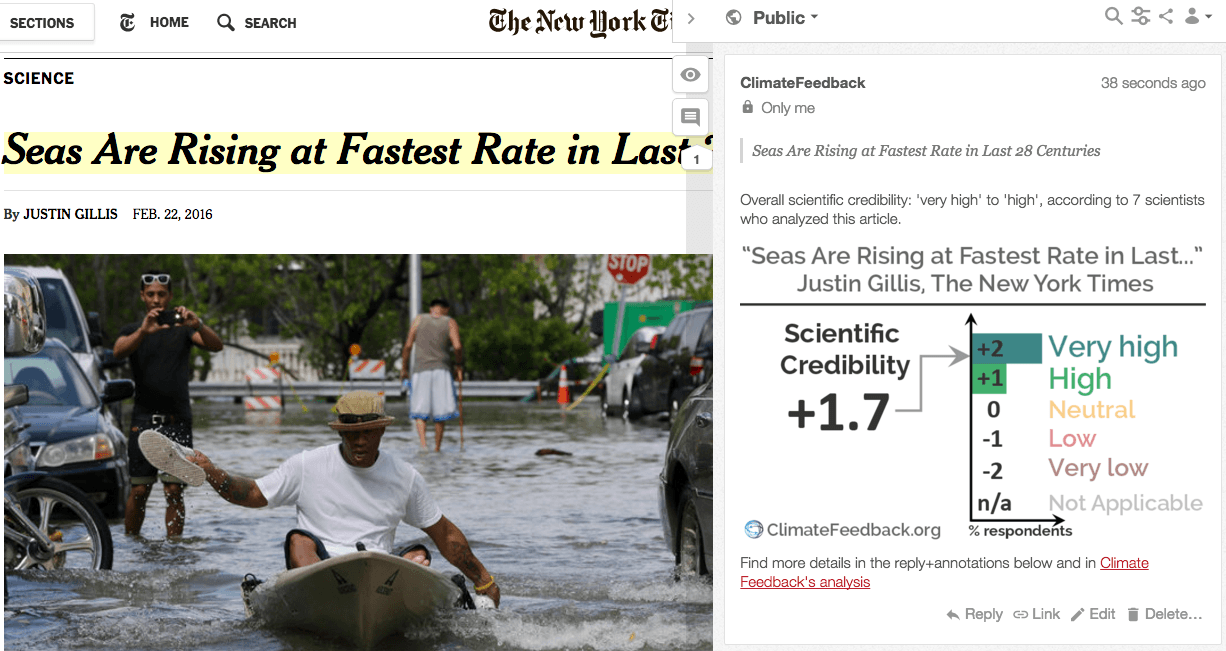
Analysis of "Seas Are Rising at Fastest Rate in Last 28 Centuries"
Justin Gillis reports on new results showing that the current rate of sea level rise is unprecedented in a record dating back 2,000 years. The article explains that this rise is attributable to human induced climate change and that higher sea levels are already impacting coastal communities. The seven scientists who reviewed the article confirmed that it is accurate and insightful.

